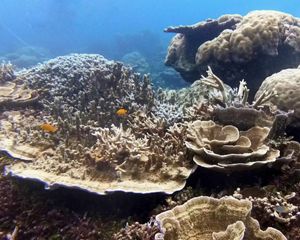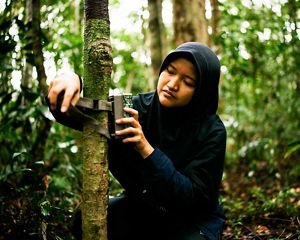
For two days, the Mahakam Ulu Regency Government gained valuable insights in Karangrejo Village, Borobudur District, Magelang. "Take home ideas, take home the spirit, and take home knowledge that we can apply in our villages," said the elected Regent of Mahakam Ulu, Angela Idang Belawan, in Yogyakarta on Tuesday, 29 July 2025.
Read: Collaboration in Supporting Management of Marine Conservation Areas in Teon Nila Serua, Maluku
On July 29-30, 2025, a Community Development Workshop titled “Pembangunan Masyarakat dari Kampung menuju Pembangunan Berkelanjutan” was held in this village. Forty participants, representing the Regional Apparatus Organizations of Mahakam Ulu Regency, attended the workshop. The workshop, organized in collaboration between the Mahakam Ulu Regency Government and Yayasan Konservasi Alam Nusantara (YKAN), aimed to draft work plan documents and define roles for each stakeholder in sustainable village development.
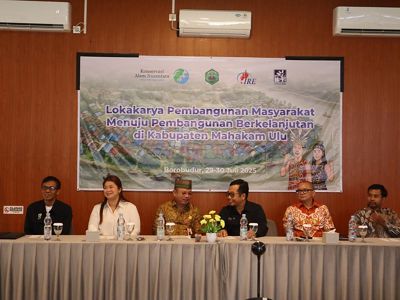
Mahakam Ulu Regency (Mahulu), located in the northwest of East Kalimantan Province, comprises five districts with 50 villages and shares a border with Malaysia. Being the farthest and youngest regency in East Kalimantan, Mahulu faces geographical challenges. Its primary access route is the Mahakam River, whose water levels influence transportation in and out of Mahulu, impacting the prices of essential goods.
However, Regent-elect Angela stated that these challenges fuel the spirit of food self-sufficiency. "We encourage communities to develop 10 hectares of productive land per village for rice cultivation," she said. She added that these efforts would not succeed without establishing proper systems and governance. " Such systems can only be constructed if we draw lessons from those that function effectively," she said, referring to Karangrejo Village. Karangrejo has successfully integrated agriculture, plantations, and ecotourism, preserving its reputation as a tourism village while continuing to nurture its agricultural heritage and local wisdom.
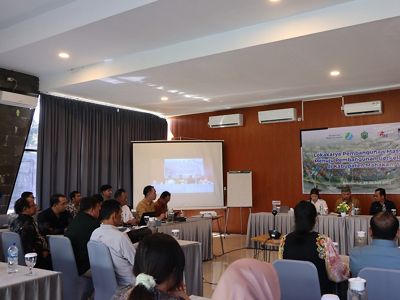
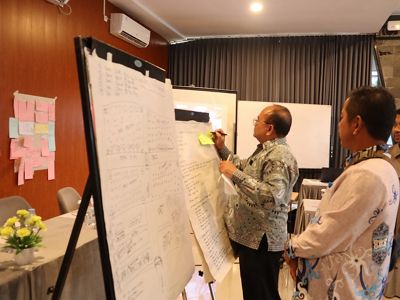
To enrich participants' understanding, the workshop featured practitioners and academics in food security programs and village governance. Professor Hermanu Triwidodo from IPB University presented on integrated agricultural development. Additionally, Karangrejo's Village Head, Heli Rufiqin, and Farmer Group Leader, Handoyo, shared experiences in village asset management and youth initiatives in sustainable agriculture.
Regent-elect Angela emphasized that practices in Karangrejo could be adapted to Mahulu's local characteristics. "Do not waste this workshop—listen, observe, take notes, and discuss. It doesn’t have to be complicated as long as it can be implemented and positively impact the community," she said.
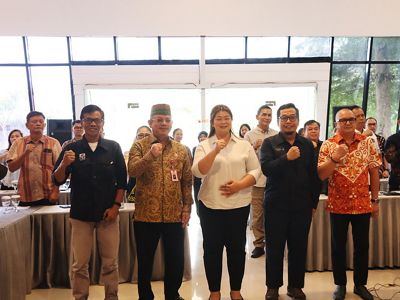
YKAN's Senior Terrestrial Program Manager, Niel Makinuddin, highlighted the need for a shared vision in realizing the newly initiated cooperation last month. The Mahulu Government and YKAN signed a memorandum of understanding on 18 June in Jakarta. Niel noted that the Magelang workshop is part of aligning visions, expectations, and role distribution to support sustainable development in Mahulu. This regency is crucial for East Kalimantan, covering about 15,315 km² (7.26% of East Kalimantan Province). Of this area, around 83% is forested, with the remainder designated as Other Use Areas (APL). "Managing Mahulu wisely means preserving East Kalimantan's biodiversity—the upstream Mahakam River is the heartbeat of this province," said Niel.



